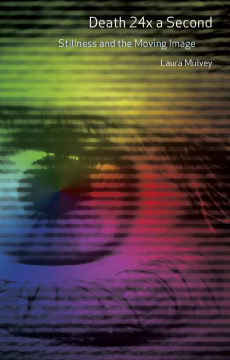
Additional Information
Book Details
Abstract
Death 24x a Second is a fascinating exploration of the role new media technologies play in our experience of film. Addressing some of the key questions of film theory, spectatorship, and narrative, Laura Mulvey here argues that such technologies, including home DVD players, have fundamentally altered our relationship to the movies.
According to Mulvey, new media technologies give viewers the ability to control both image and story, so that movies meant to be seen collectively and followed in a linear fashion may be manipulated to contain unexpected and even unintended pleasures. The individual frame, the projected film’s best-kept secret, can now be revealed by anyone who hits pause. Easy access to repetition, slow motion, and the freeze-frame, Mulvey argues, may shift the spectator’s pleasure to a fetishistic rather than a voyeuristic investment in film.
By exploring how technology can give new life to old cinema, Death 24x a Second offers an original reevaluation of film’s history and its historical usefulness.
"Death 24x a Second whispers rather than shouts, gently leading readers through a series of reflections on stasis, life, and death. In reference to stillness and the photograph, Mulvey elegantly aligns the divergent discussions of Andre Bazin and Roland Barthes, offering a productive assessment of each writer's attempt to grapple with the paradox of a time that was, in the past, a 'now.' . . . Mulvey. . . continues to provoke new ways of seeing--or reseeing--the cinema we think we know."
— Holly Willis, Film Comment
"Rethinks the fundamentals of film history through modern audiovisual technology."
— Independent on Sunday
"Death 24X a Second takes up both the challenge to critical thinking represented by new technological developments, and the impulse towards reflection on film's past that they have occasioned . . . a thoughtful book."
— Tony Wood, New Left Review
"Elegiac . . . a wonderful close analysis. Despite the melancholy in cinema's enounters with a fleeting past, the prospects opened up by filmic slowness are, for Mulvey, productive of optimism."—Times Higher Education Supplement
— Dana Polan, Times Higher Education Supplement
"Refreshingly argued. . . . Mulvey's argument assers a new viewer-film relationship . . . This allows a newly-multi-dimensional understanding of 'the internal world of cinema.' Taken as a whole, the book effectively, if idealistically, essays this newly empowered gaze as a revolution in our knowledge of the increasingly important image world she says is equivalent to 19th-century photography transforming 'the human eye's perception of the world.'"
— Hamish Ford, Onscreen
Laura Mulvey is professor of film and media studies at Birkbeck College, University of London, and the author of a number of books, including Visual and Other Pleasures and Fetishism and Curiosity.
